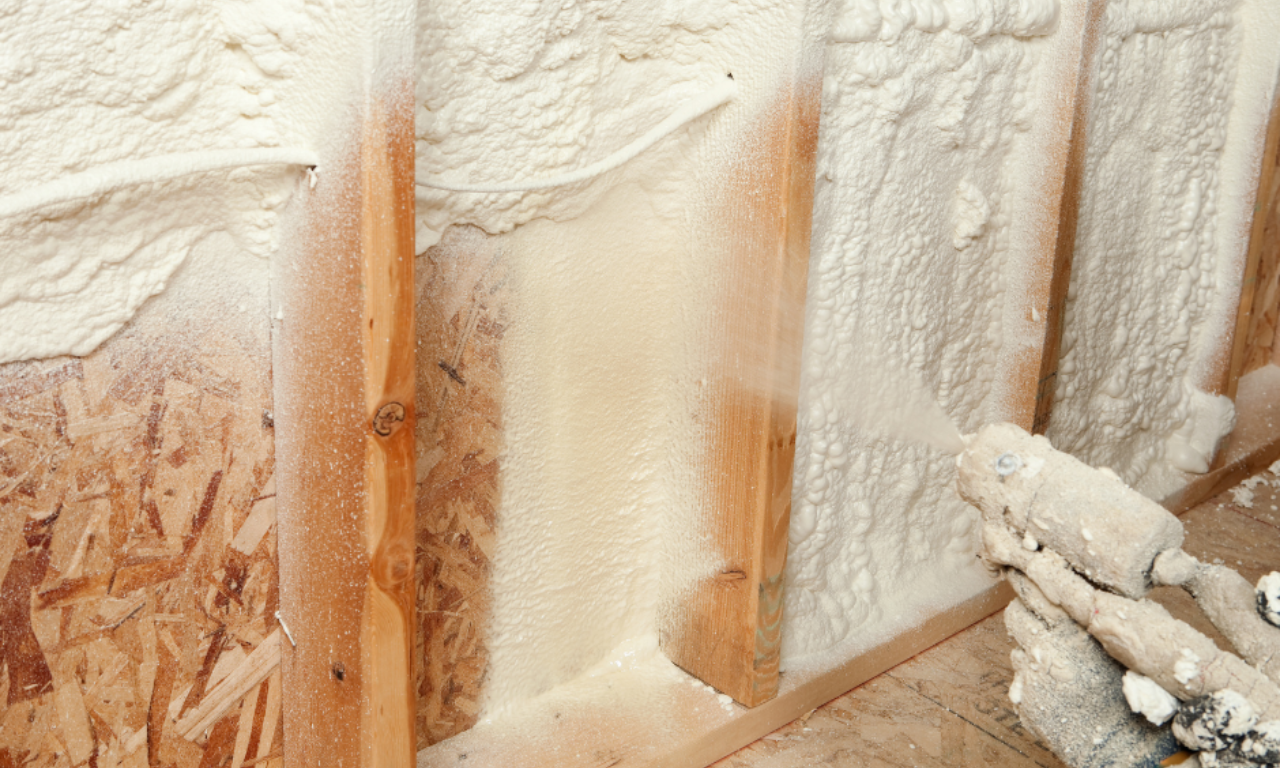The risks of spray foam insulation

More and more homeowners are looking for ways to heat their properties whilst saving on energy bills, leading many to turn to spray foam insulation.
An estimated 250,000 households in the UK have spray foam insulation in their lofts in a bid to improve energy efficiency. But most people are unaware of the detrimental effect it can have on a property’s valuation and the risks of long-term damage if the wrong foam is used or incorrectly installed.
Spray foam insulation is a form of liquid insulation used to insulate roofs, attics and lofts. It has been used because of its ability to fill awkward, hard-to-reach nooks and crannies.
However, all homeowners should exercise utmost caution before considering installing the insulation and only do so after talking to an expert.
Reuben Diffey, Managing Director of Property Formula: “Despite being an effective insulator, spray foam can cause irreparable, long-term damage so it’s important to be aware of the risks before you consider investing in it for your home.
“If spray foam insulation isn’t installed correctly it can trap hot air and cut off adequate ventilation. This creates a buildup of condensation which will eventually lead to the weakening or decay of the structure of the building.
“Many spray foam installers have little to no experience so often do more harm than good.
“We’re seeing many property owners left with bills running into the thousands of pounds to remove or repair the poorly installed insulation.”
Spray foam insulation makes it difficult to assess the condition of the property underneath it, particularly in cramped spaces like lofts.
This hits valuations and surveys – which has led to most mortgage lenders refusing to lend or imposing onerous condition to lending on properties with foam insulation.
In almost all cases, spray foam insulation obscures the view of the area where it has been installed which prevents surveyors from carrying out thorough inspections or providing accurate surveys impacting on the ability to value.
“The biggest concern all property owners need to be aware of is how this can affect your ability to remortgage your property or take out equity release," said Reuben. "Most mortgage lenders will avoid re-mortgaging homes with spray foam insulation because of the uncertainty around the property’s condition.
“We have witnessed cases where homeowners who want to move house are stuck, because their buyers’ cannot get a mortgage on the property. It is causing a lot of anguish for homeowners and so we strongly advise people to get professional advice before using foam spray insulation.”
Installing spray foam insulation correctly requires a significant investment. In contrast, there are several the relatively inexpensive alternatives like rockwool or DIY products that are easy to install and achieve a similar effect.
Reuben added: “Spray foam should only be put into your home after expert advice and careful consideration. If you do think it’s right for your property, make sure to check with your mortgage and insurance provider to confirm that your policy allows it.”